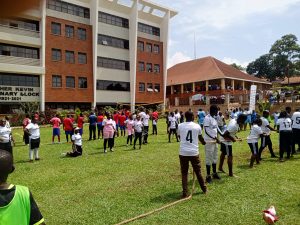














Archbishop Janani Luwum was a prominent Ugandan religious figure known for his courageous opposition to the dictatorial regime of President Idi Amin. Here’s an overview of his life:
- Early Life and Education: Janani Luwum was born in 1922 in the village of Mucwini in northern Uganda. He was raised in the Anglican faith and received his early education at local mission schools. Later, he attended Buwalasi Theological College and was ordained as a priest in 1956.
- Rise to Prominence: Luwum quickly rose through the ranks of the Anglican Church in Uganda, becoming the Bishop of Northern Uganda in 1969. His leadership skills and commitment to social justice caught the attention of both his congregation and the wider Ugandan community.
- Resistance to Amin’s Regime: Following the military coup in 1971 that brought Idi Amin to power, Luwum became increasingly vocal in his criticism of the regime’s human rights abuses, political repression, and corruption. He used his position as Archbishop of the Church of Uganda to advocate for justice and speak out against government atrocities.
- Martyrdom: On February 16, 1977, Archbishop Luwum was arrested along with other religious leaders on trumped-up charges of plotting against the government. Despite international outcry and calls for his release, he was brutally murdered under mysterious circumstances while in custody. The official account claimed he died in a car accident, but it’s widely believed that he was assassinated on orders from President Amin.
- Legacy: Janani Luwum’s martyrdom galvanized opposition to Amin’s regime both within Uganda and abroad. He became a symbol of resistance and courage, inspiring countless individuals to stand up against tyranny and fight for justice. In 2015, he was recognized as a martyr by the Anglican Communion, and his legacy continues to be celebrated in Uganda and beyond.
- Honors and Commemoration: Numerous institutions and landmarks have been named in honor of Archbishop Janani Luwum, including schools, roads, and an annual memorial day observed in Uganda. His life and sacrifice remain an enduring testament to the power of faith, courage, and moral conviction in the face of oppression.


